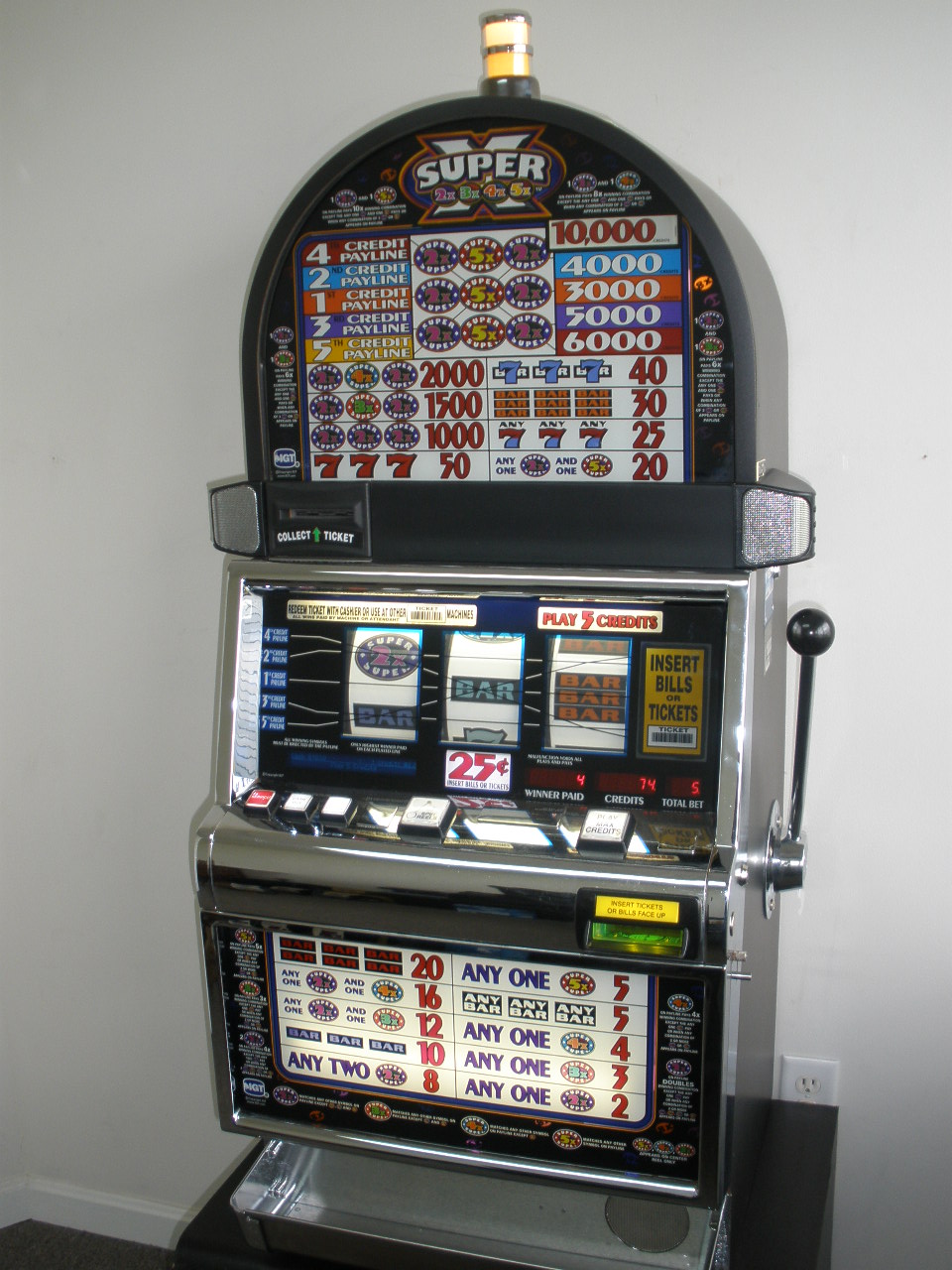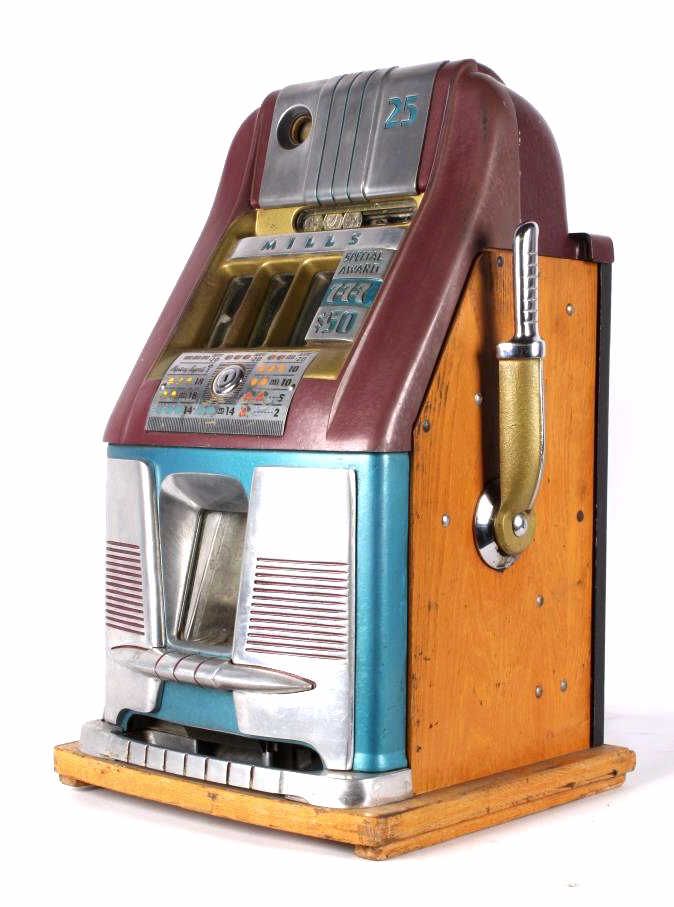The amount already withheld for federal taxes is noted in Box 4 of the Form W-2G. State and local tax withholdings are provided in Boxes 15 and 17, respectively. You may be required to withhold 24% of gambling winnings (including winnings from bingo, keno, slot machines, and poker tournaments) for federal income tax. This is referred to as backup withholding. You should backup withhold if: The winner doesn't furnish a correct taxpayer identification number (TIN).
Players dream of hitting a big jackpot when they play the slots. When that day comes for you, you'll have questions about the taxes you must pay on the winnings.
Hand Pay Jackpots
When you hit the winning combination of symbols for a large jackpot, your slot machine locks up. Depending on the machine, the lights on top of the machine may come on and start flashing, music may play or bells ring. A slot attendant arrives promptly to see what you have won.
On jackpots smaller than $5,000, an attendant verifies that you hit the jackpot and then assists you in claiming your money at the cashier's cage. In the case of a large or progressive jackpot, the casino may have technicians come and check the machine to certify that it was functioning properly when the jackpot hit. If you hit one of the wide-area progressive machines such as MegaBucks, the slot company that operates the game comes out and verifies that machine before giving you a check.
When you hit a jackpot, you have the option of taking your winnings in cash or check. Usually, large amounts are paid by check. In the case of the MegaBucks or similar multi-million dollar jackpots, you receive a check for the partial amount, and then you have 90 days to decide if you want to be paid a lump sum or an annual annuity on the balance. If you select the lump sum option, you receive only a percentage of your actual winnings. For example, the full winnings of one multi-million slot jackpot is paid in 25 annual installments, or you can take a lump sum of 60 percent of the winnings.
IRS Withholding
All casino winnings are subject to federal taxes. However, the IRS only requires the casinos to report wins over $1,200 on slots and video poker machines or other games such as keno, lottery or horse racing. When you have a win equal to or greater than $1200, you are issued a W-2G form. This form lists your name, address and Social Security number. The casinos are not required to take out withholding tax on jackpots under $5,000 as long you supply your Social Security number. If you don’t provide your Social Security number, the casinos withhold 28 percent on small jackpots.
You can request a specific amount of withholding tax to be taken out of any jackpot you win. Some players like to do this to avoid a big tax payment in April when they file their income tax returns. The additional withholding may not be necessary if you keep a log book. The law allows you to deduct gambling losses up to the amount of your winnings. You can only do this if you have documentation of your losses. Keeping a diary or log book is the way to do this.
Proper Identification

Casinos can refuse to pay you until you produce proper identification—a photo ID such as a driver’s license, military ID or passport.
If you don’t produce an ID, you are photographed and the casino holds your winnings until you come back with proper ID. For this reason, you should always carry a valid form of identification with you when you visit the casino.
When the casino checks your identification, it also checks your age to make sure you are legally old enough to play. The minimum age for gambling varies from state to state, but under-age gamblers are not be paid if they hit a jackpot. This is the law in all jurisdictions, and it has been upheld in court.
Plan Ahead
Before you start playing your favorite slot machine you should have a plan for the day you hit a jackpot. Players become excited when they hit the big one, and this may affect the decisions you make about your winnings. It is helpful if you know ahead of time how much withholding you want taken out or whether you want a check for all or some of the amount.
No doubt about it, winning the lottery dramatically changes a person’s life. A financial windfall of that magnitude quickly grants you a level of financial freedom you probably have trouble imagining.


But becoming a Mega Millions or Powerball jackpot winner doesn’t change everything. If you are the lucky winner, you still have to worry about bills and taxes. This is when a lottery tax calculator comes handy.
What Slot Machines Have The Best Payouts
How are lottery winnings taxed under federal and state?
Lottery winnings are considered ordinary taxable income for both federal and state tax purposes. That means your winnings are taxed the same as your wages or salary. And you must report the entire amount you receive each year on your tax return.
For example, let’s say you elected to receive your lottery winnings in the form of annuity payments and received $50,000 in 2019. You must report that money as income on your 2019 tax return. The same is true, however, if you take a lump-sum payout in 2019. You must report that entire amount as well. For this, a tax calculator is an essential tool.
Note: Before you receive one dollar, the IRS automatically takes 25 percent of your winnings as tax money. You’re expected to pay the rest of your tax bill on that prize money when you file your return.
What is the tax rate for lottery winnings?
When it comes to federal taxes, lottery winnings are taxed according to the federal tax brackets. Therefore, you won’t pay the same tax rate on the entire amount. The tax brackets are progressive, which means portions of your winnings are taxed at different rates. Depending on the number of your winnings, your federal tax rate could be as high as 37 percent as per the lottery tax calculation.
State and local tax rates vary by location. Some states don’t impose an income tax while others withhold over 15 percent. Also, some states have withholding rates for non-residents, meaning even if you don’t live there, you still have to pay taxes to that state.
Slot Machine Payout Odds
Do I have to pay state taxes on lottery winnings if I don’t live in the state where I bought the ticket?
Most states don’t withhold taxes when the winner doesn’t reside there. In fact, of the 43 states that participate in multistate lotteries, only two withhold taxes from nonresidents. Arizona and Maryland both tax the winnings of people who live out-of-state.
Can I change the amount of tax the lottery withholds?
You don’t have a choice on how much state or federal tax is withheld from your winnings. The only piece you can control is how much money you save to cover any extra money you may owe. For this, you can use a federal tax calculator.
Do lottery winnings count as earned income for Social Security purposes?
Slot Machine Payout Percentage
Lottery winnings are not considered earned income, no matter how much work it was purchasing your tickets. Therefore, they do not affect your Social Security benefits.
Does winning the lottery affect my tax bracket?
Winning the lottery can affect your tax bracket in a big way. An average family’s top federal tax rate could go from 22 percent to 37 percent. But remember, if that happens, you likely won’t pay the top rate on all of your money.
That is unless your regular household income already places you in the top tax bracket prior to winning. In that case, all of it is taxed at 37 percent. This can be calculated using a tax calculator. Lottery winnings are combined with the rest of your taxable income for the year, meaning that money is not taxed separately.
What are the benefits of taking a lump sum payment versus annuity payments?
If you take a lump sum, you have more control over your money right now. You can choose to invest it into a retirement account or other stock option to generate a return. You could also use it to buy or expand a business.
Several financial advisors recommend taking the lump sum because you typically receive a better return on investing lottery winnings in higher-return assets, like stocks. If you elect annuity payments, however, you can take advantage of your tax deductions each year with the help of lottery tax calculator and a lower tax bracket to reduce your tax bill.
The decision for which option is better is complex. It all depends on the size of the lottery winnings, your current and projected income tax rates, where you reside, and the potential rate of return on any investments. If you win big, it’s in your best interest to work with a financial advisor to determine what’s right for you. However, you can also determine the taxes using a federal tax calculator.